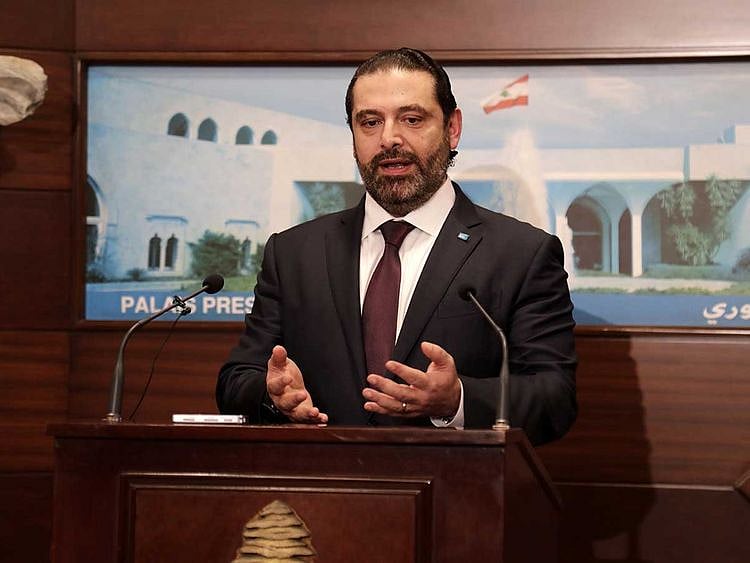Why Lebanon lacks a cohesive Sunni bloc
With Hariris gone and for lack of other alternatives, Sunni community feels leaderless

It’s been almost twelve months since former Lebanese Prime Minister Saad Al Hariri announced his withdrawal from Lebanese politics.
He called on his followers to boycott Lebanon’s May 2022 parliamentary elections, insisting that his Future Movement neither nominates candidates nor takes part in the voting.
A handful of Sunni figures refused to abide by his command, including his own brother Bahaa Al Hariri, and his predecessor Fouad Al Siniora, a lifetime friend and ally of his slain father, Rafiq Al Hariri. None of them were able to make any serious breakthrough last May, resulting in a chamber of deputies that lacks a strong and cohesive Sunni bloc.
Twenty-seven Sunni MPs were voted into office, mostly independents, newcomers, or allies of the Hezbollah-led 8 March Coalition. Lebanese Shiites voted in May — in large numbers — securing 30 seats for the twin Shiite parties, Amal and Hezbollah.
So did the Christians, who took the lion’s share of seats in parliament: 19 for the Lebanese Forces (LF) and a total 21 for the Free Patriotic Movement (FPM) and its allies.
Three decades of the Hariri family
The Hariri family had led Lebanon’s Sunnis since 1992. For three solid decades, they were protected and promoted first by Rafik Al Hariri, then by his son, who succeeded him at the helm of the family business empire, and that of the Sunni community, in 2005.
During the Hariri years, all the traditional Sunni families of Lebanon, like the Solhs, Itanis, Salams, and Bayhums, were either sidelined or forced to work with the Hariris in order to maintain their relevance in the Sunni community.
Those who refused, like ex-Prime Minister Salim al-Hoss, were defeated in the 2000 elections. Others, like Omar Karami of Tripoli, chose to work with Hezbollah. The sudden disappearance of the Hariris ought to have been a golden opportunity for ambitious Sunnis from all stripes to make a comeback.
But they were too weak now, too divided, and both uncharismatic and unable to stand up to more powerful leaders of other communities. They also lacked Hariri’s deep pockets to bankroll their politics. With the Hariris gone and for lack of other alternatives, members of the Sunni community were left vulnerable and without a leader.
Choosing a new president
That wasn’t immediately clear until President Michel Aoun’s term came to an end on 31 October 2022. Post-civil war, presidents were chosen by consensus, making sure that all major components of the country’s confessional system sign off any new occupant at Baabda Palace.
That meant Maronite Christians, Druze, and both Sunnis and Shiites all had a say in who their next president would be. Yet today, nearly two months after Aoun left office, the debate over Lebanon’s next president is taking place exclusively between Christians and Shiites, with Samir Gagegea of the LF lobbying for Michel Mouwwad, Hezbollah rooting for Suleiman Frangieh, and the FPM pushing for their leader, Aoun’s son-in-law, Gibran Bassil.
Sunnis have no candidate, forced to play along with one of the names on the table, although two Sunni figures are being consulted on the matter, rather ceremonially, being Prime Minister Najib Mikati and Lebanon’s Grand Mufti Abdul-Latif Deiryan.
Also Read
Lebanon faces an unprecedented power vacuumWorld Food Programme to allocate $5.4b for Lebanon over 3 years, caretaker PM saysLebanese Army Commander Joseph Aoun seen as a president-in-waiting after Doha visit.Mikati’s approval is mandatory only because he happens to be premier, but had he been out office, he would have minimal say — if any — on the identity of Lebanon’s next president.
No Sunni heavyweights
Additionally, Christian parties have begun to eye important posts in government previously exclusive to Sunnis, like the Ministry of Interior, which Gibran Bassil tried claiming for the FPM. They feel it is the right time to make such claims, with no Sunni heavyweight around.
This Sunni absence is unprecedented in Lebanon’s modern history. President Beshara al-Khoury came to office in 1943 through allying himself with Sunni heavyweight Riad Al Solh.
The two men famously put together the National Pact, a gentlemen’s agreement that has been observed ever since, giving the presidency to a Maronite Christian and the premiership to a Sunni Muslim.
Khoury’s successor, Camile Chamoun, took the country entirely into the US orbit, but was brought down in 1958. His successor Fouad Shihab was an all-time favourite of Lebanese Muslims, who were given more equal access to jobs, and better representation in the civil service.
The list goes on and on, reaching up to the early 1990s, when Rafik Al Hariri became prime minister, leading the country through what was then-described as a powerful “troika” between him, Nabih Berri, and President Elias Hrawi representing Maronite Christians.
Thirty years down the road, Berri is still around. Various Christian figures are there too, but the Sunni component of the “troika” is nowhere to be seen in Lebanon.
— Sami Moubayed is a Syrian historian and former Carnegie scholar. He is also author of Under the Black Flag: At the frontier of the New Jihad.
Sign up for the Daily Briefing
Get the latest news and updates straight to your inbox
Network Links
GN StoreDownload our app
© Al Nisr Publishing LLC 2026. All rights reserved.